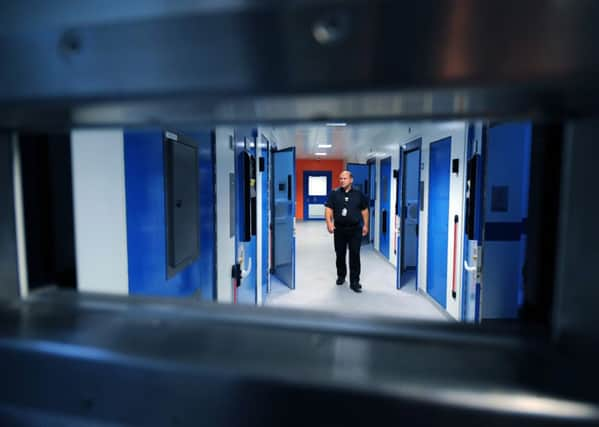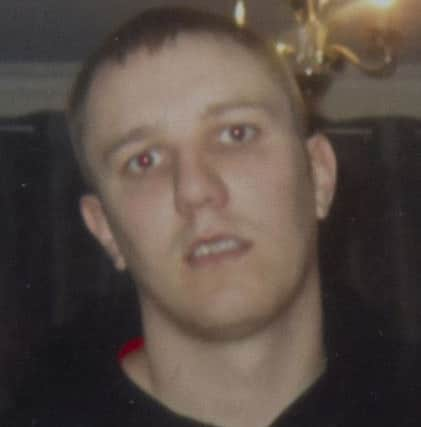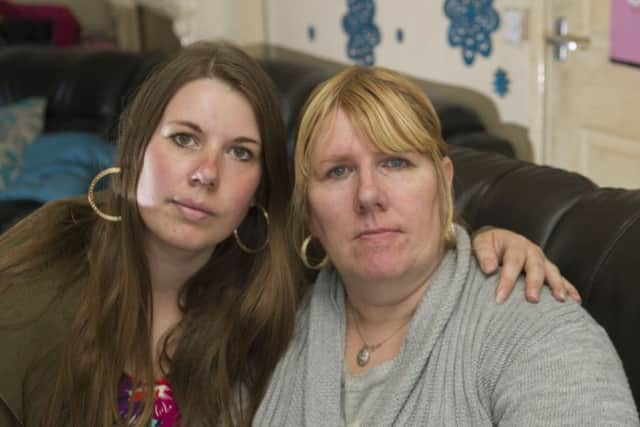Second inquest jury criticises staff at Leeds custody suite


The search carried out on father-of-two Robert Ward, who was able to ingest unknown substances while held at the Elland Road district base, was not good enough, according to a jury.
The 26-year died in hospital in 2014, two weeks after being found unconscious at a flat near his home in Seacroft, Leeds.
Advertisement
Hide AdAdvertisement
Hide AdThe day before he was rushed to hospital, he was bailed by a court having been transferred from custody at West Yorkshire Police’s £34 million Elland Road site.


Mr Ward ingested an unknown quantity of tablets and illicit drugs on three separate occasions during his two nights in custody and was admitted to hospital twice.
Returning a narrative verdict into his death, a inquest jury ruled that the correct level of observation was carried out and the levels of restraint when transferring him to court were appropriate.
But it ruled that the search carried out after his initial arrest was “insufficient” as the police’s records management system, NICHE, showed he had previously concealed and taken drugs while in custody.
Advertisement
Hide AdAdvertisement
Hide AdNo suggestion was made by the jury that the substances he consumed while in custody contributed to his death.


Two West Yorkshire Police officers have been served with misconduct notices as part of the IPCC’s investigation, with the performance of one deemed ‘unsatisfactory’ and the other found not to have a case to answer.
After leaving court on October 9, Mr Ward went to his ex-partner’s house, where the jury said there were concerns about his welfare but an ambulance was only called “some hours later”.
The verdict given at Wakefield Coroner’s Court said: “Witness statements suggest that Robert was under the influence of unknown substances but we have insufficient evidence of when, what, how or where, if any, was consumed.
Advertisement
Hide AdAdvertisement
Hide Ad“There were missed opportunities to call for medical assistance at 3am, 6.30am, 7am and 9-9.30am. From having concerns at around 3am an ambulance was only called some hours later on the advice of Robert’s father, who said he needed medical assistance.


“We believe that a delay in calling an ambulance may have or could have contributed to Robert’s death.”
The jury ruled that Mr Ward would have been arrested for harrassment prior to being detained for breaching a non-molestation order, and that the use of physical force and CS spray by police was justified.
In February, a coroner said he would raise concerns with West Yorkshire Police after it emerged that guidelines on observing prisoners in custody were not followed prior to the death of another man at the Elland Road base, which opened in 2014.
Advertisement
Hide AdAdvertisement
Hide AdAn inquest jury returned a narrative conclusion and said observations of 46-year-old Adam Rice in a cell at the police station were not carried out in accordance with Police and Criminal Evidence Act (PACE) guidelines.


However, the jury concluded Mr Rice’s death in May 2014 was “coincidental and not as a consequence of his detention” at the police station.
The Independent Police Complaints Commission is looking into both deaths, as well as that of Ethaniel Butler, 22, an electrical engineer from Leeds who died a few days after being held in custody at Elland Road.
The watchdog’s report on the death of Mr Ward has not yet been published, but in 2014 it said it was looking into whether there were “any common themes across the deaths and learning recommendations for West Yorkshire Police”.
Advertisement
Hide AdAdvertisement
Hide AdAn IPCC spokeswoman said: “The IPCC investigation looked into the circumstances of Mr Ward’s detention and the actions of West Yorkshire Police.
“The IPCC investigation resulted in the actions of a custody sergeant following the ingestion of an unknown substance whilst in custody being deemed as unsatisfactory performance.
“Following the conclusion of the inquest into Mr Ward’s death, the IPCC will now consider the publication of the final report from the investigation.”
Assistant Chief Constable Angela Williams of West Yorkshire Police said in a statement: “I would firstly like to offer our continued condolences to Robert Ward’s family.
Advertisement
Hide AdAdvertisement
Hide Ad“The circumstances surrounding his detention in custody at Leeds District Headquarters in October 2014 have been comprehensively examined through an independent investigation by the Independent Police Complaints Commission and a Coroner’s Inquest.
“Two officers were served with misconduct notices as a result of the IPCC investigation. One was found to have no case to answer having used reasonable force towards Mr Ward and the other officer was found to have a case to answer in relation to the level of observations on Mr Ward. He was given an action plan.
“A copy of the IPCC report and the inquest verdict has been provided to our central custody services department to identify any lessons to learn or training issues and to circulate those to the relevant staff as necessary.
“While the inquest jury did not find that West Yorkshire Police had contributed to Mr Ward’s death, we take our duty of care to the individuals it comes into contact with extremely seriously and will continue to do everything we can to ensure the circumstances of any incident involving death or injury following police contact are fully explored and any lessons learned.”
Advertisement
Hide AdAdvertisement
Hide AdThe family of Mr Ward, who said in 2014 that he had been “in and out of trouble with the police for years,” are angry that he was able to obtain and swallow tablets in custody on three occasions at Elland Road.
In a statement, they said: “Robert was so full of life, so full of energy and was always on the go.
“He came to the family home several times each day saying ‘hiya mum, hiya dad’, then he would be visiting brothers, sisters, his two beautiful children, and all his friends and family and fitting as much into his day as he could.
“He livened us up, telling us of his plans, something new from one day to the next. He had a beautiful big smile and cheered us all up, hated fall-outs, and he would get anyone who had fallen out to make it up and be friends again as quickly as possible.
Advertisement
Hide AdAdvertisement
Hide Ad“He loved his children and family and friends so very much, he spread his love and had enough love for everyone. He would never have left his children, brothers, sisters, mum and dad if he had a choice.
“A bright light went out of all of our lives when he passed. We were all left heartbroken and his young children needed their daddy. All his family and friends found it too hard to accept he was gone, for he was like the sunshine, brightening our day to us.”